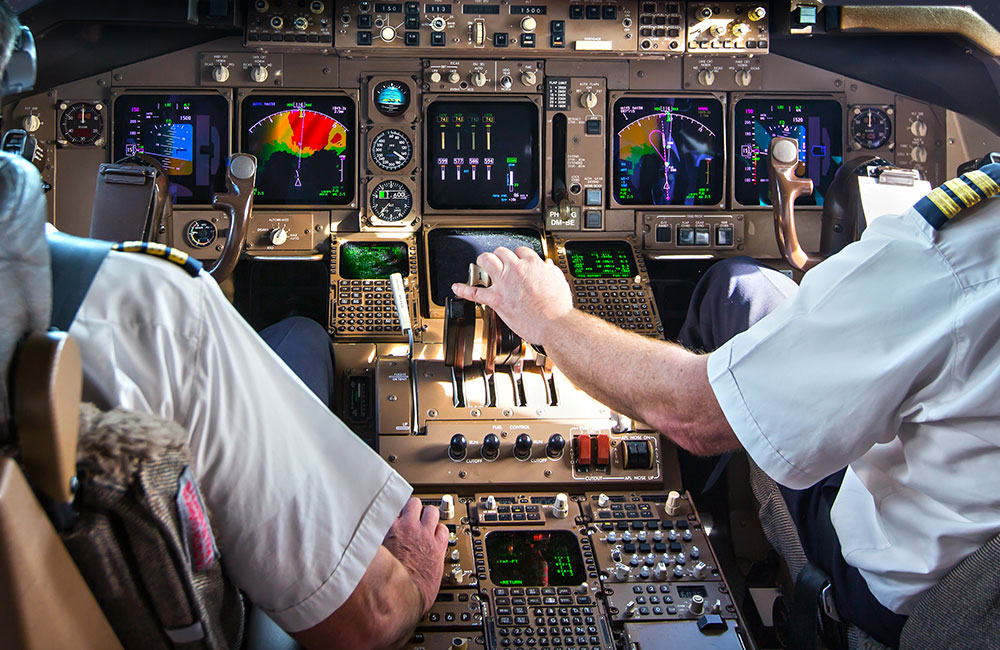Hi,
We are a team of AI/Data Science specialists, and we want experts and amateurs from aviation industry to asess potential benefits of AI. Please help us understand the need of modern technologies in the field of Aircraft Piloting and Aircraft Inspeciton and Maintenance.
Do you have a link to your company? Because this is suspicious. Multiple typos and weirdly ESL phraseology lends very little credibility. Tell us about your organization. Nevertheless, I'll entertain this a bit to see if it can gin up better conversation in the thread about this stuff.
-Would you be willing to use an AI-augmented system during piloting?
Absolutely, but it would have to be "good" in a way that most of the LLMs currently aren't. For the time being the only models I'd be willing to trust until they were tested aggressively would be simple rule based models, and decision tree type classifiers. I would absolutely not be comfortable using neural networks in any safety sensitive applications without a LOT of oversight and guardrails.
Not that they're not useful - I use them all the time - but black box models are hard to comprehend and the generative tools that exist now are are not reliable enough to trust in safety sensitive functions. That said, they get better every day, it's really exciting.
Some things I think would be good that are close to the AI and AI adjacent space would be speech-to-text if it was accurate enough. Sometimes it would be nice to simply read your clearance. Imagine you've got the iPad out and it's listening to the radio too. "ATC Clears N12345 from ABC to XYZ via the DeezNuts1 Departure, Radar Vectors SHLNG V247 to the Crazy Woman VOR then Direct, climb and maintain 6 thousand, expect flight-level 900 10 minutes after departure, departure frequency will be Grab Ass Center on 123.45, squawk 6666." Then you can just read it back
off the iPad - especially for full route clearances. Apparently people are working on this presently:
AI speech recognition ventures into the cockpit and if it could get accurate enough, this could be fantastic for helping prevent runway incursions etc. but the testing would have to be incredible.
Other cool applications would be better/airframe and even aircraft specific performance data in GA. I would have loved a tool that could help me reliably reduce fuel burns during flight, etc. but I doubt that is really feasible. I'd love AI guage interpretation with cameras so a $500 GoPro means that every little airplane has a black box, and I'd love tools that could help teach flying by being a virtual CFI and developing a recap of the flight etc. for review after the flight. There's stuff that's getting there, but it's not really AI enabled - though maybe someone has produced some cool new stuff in the last couple years while I've been in school.
I see a huge amount of potential in 135 in dispatch/flight-follower augmentation though, and eventually maybe even in ATC, though that's probably further out. I could see a lot of tooling to help get rid of friction between the customers and the company in GA. Our entire inventory was basically on a whiteboard and notification of customers had to come from a dispatcher remembering Annie Jo's phone number and calling her. AI could probably help there under certain circumstances, but I don't know if the juice is worth the squeeze.
I just read this paper yesterday:
https://arxiv.org/pdf/2304.03442 That talks about using LLM generated AI agents to do some party planning, and this amazing paper:
[2405.02957] Agent Hospital: A Simulacrum of Hospital with Evolvable Medical Agents that uses AI agents in a simulated hospital. If these applications turn out to be legit this would be an excellent area of focus to automate some of the ground/support roles or at least provide a check of human performance. It can be done, but it's a matter of figuring out how much money you want to spend.
In the airplane, other than the actual act of flying itself (i.e. better autopilots), I have a hard time seeing what generative tools could really do to help day to day operations and presently NNs have a long way to go before I would trust them with full control. Obviously, ML in other forms is very practical for some more narrowly focused tasks, but since the term you use "AI" is so broad it's hard to tell what you're getting at.
- Are you interested in an AI-based Aircraft Inspection technology (statistics on number of defects, number of deformites, level of damage, prediction, etc.)?
I'm not sure what a "deformite" is - but, most companies probably already have statistics on their maintenance program. Even small companies do things like preventative maintenance, you could obviously make that better, but it's really hard to beat the cost of an google sheets spreadsheet on a free google drive account.
Big airlines might be able to torture some reasonable analytics out of their maintenance data, but I would be willing to bet that most airlines already have something like that. As for seeing specific defects, that's an area of somewhat active research:
This paper tries to use a UAV to inspect an airplane. It's cool, and it could probably benefit from more modern CV tools... but also, I do not think flying a bunch of autonomous quad copters around the airport immediately adjacent to running turbofan engines is a recipe for success. The paper is kind of cool if it could be automated, but if I were a business, I would never implement this on my fleet - or at least until the tooling got a LOT better.
Of course.


